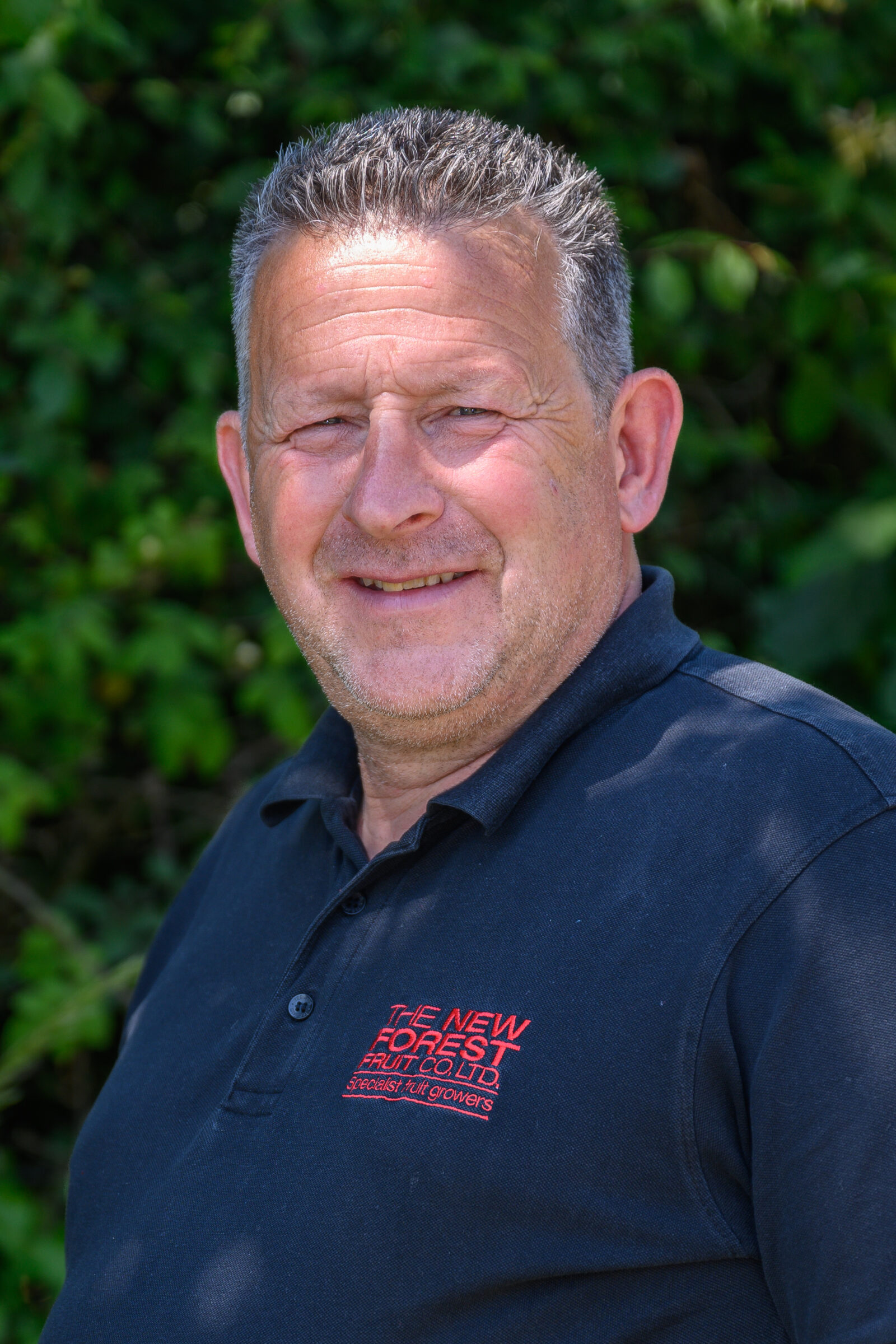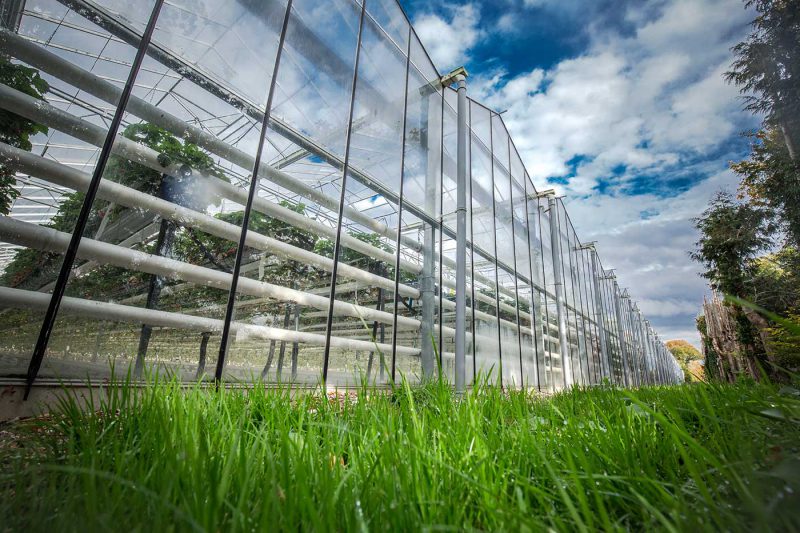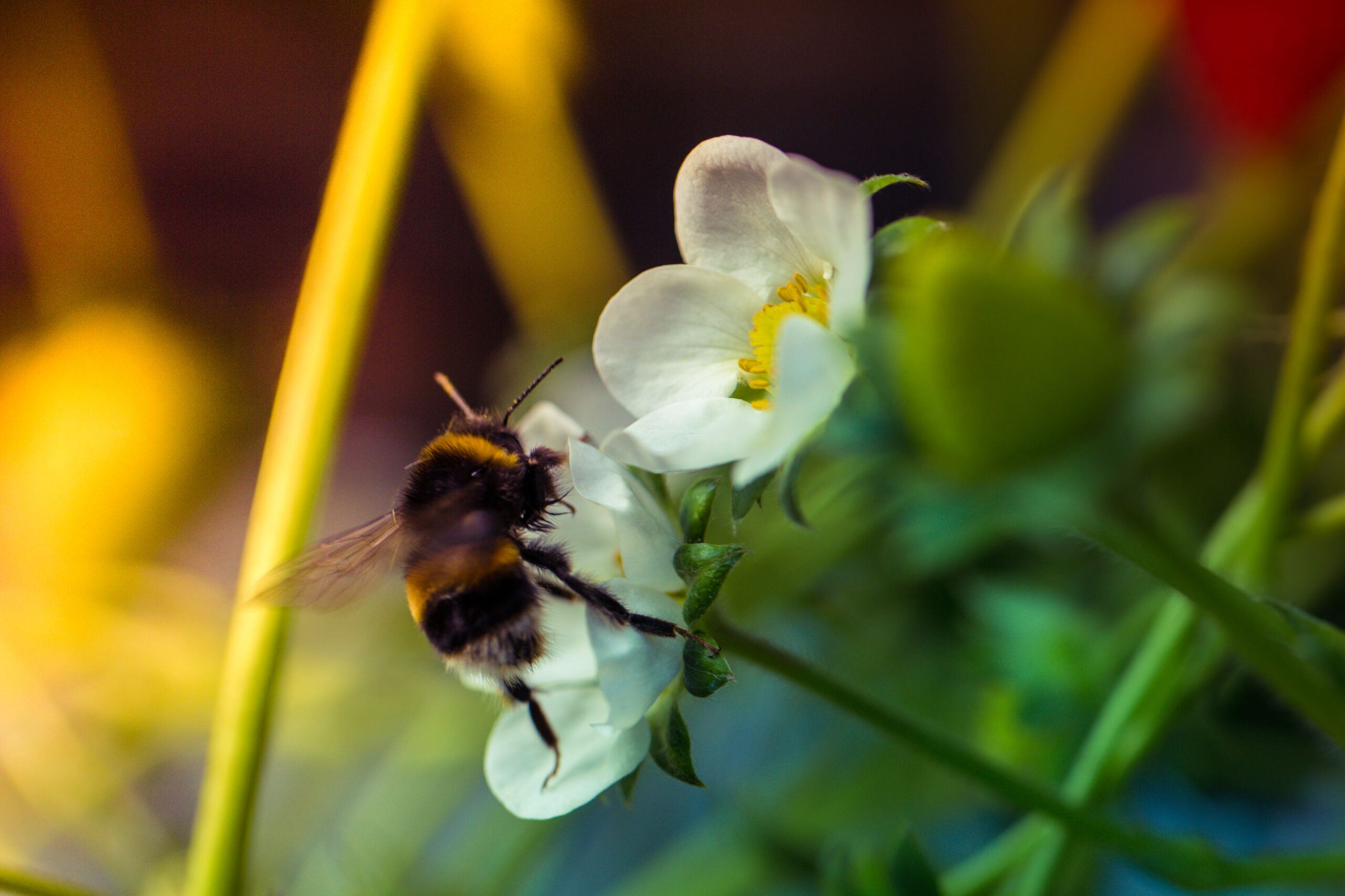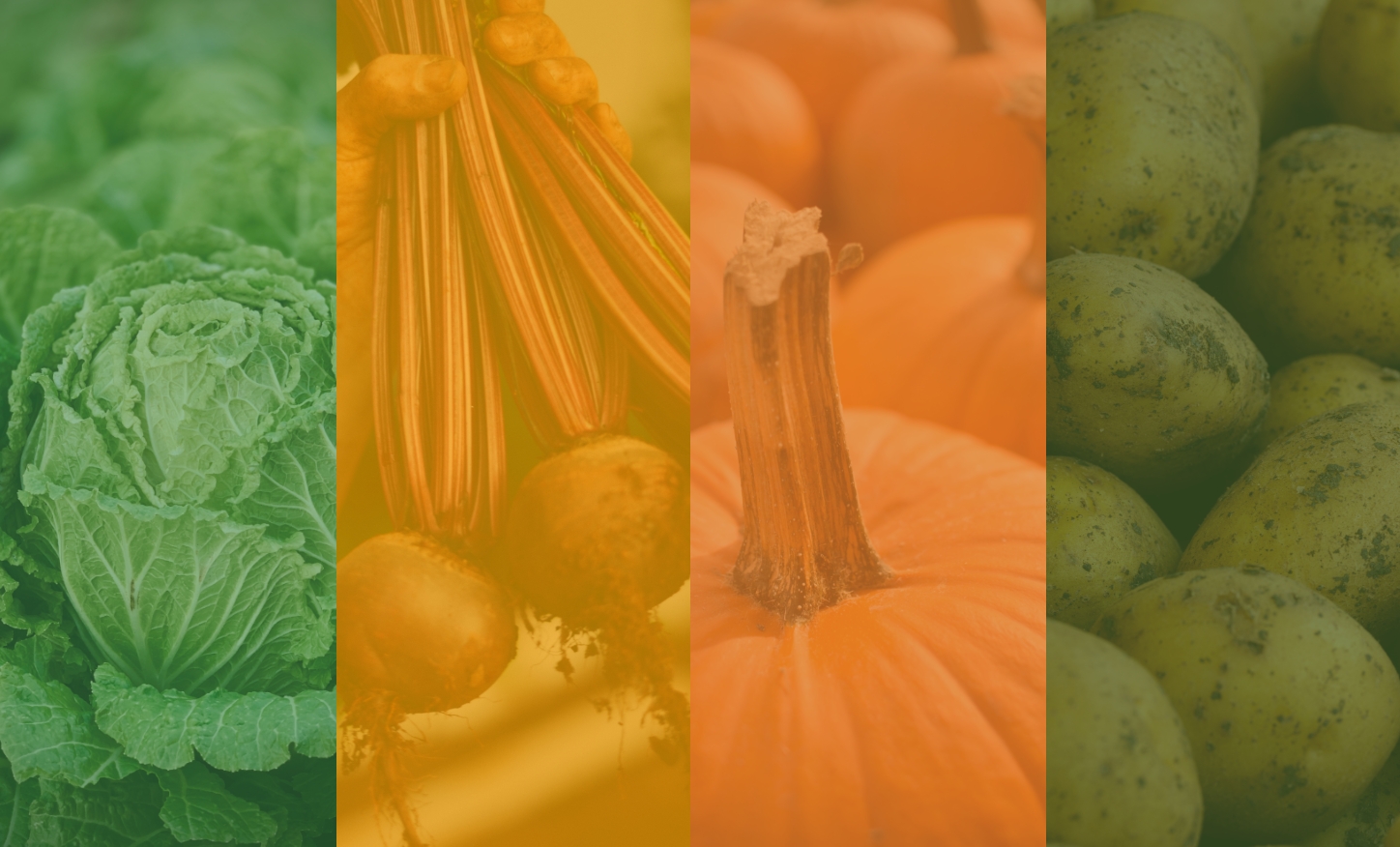28 May 2024
In the first of our spotlight features, we talk to one of our favourite soft fruit and asparagus growers.
Nestled within the scenic Beaulieu Estate in the heart of the New Forest National Park, the New Forest Fruit Company stands as a beacon of excellence in soft fruit cultivation. This thriving business spans over 80 hectares and is renowned for its top-tier strawberries, asparagus, and other soft fruits.

Introduction
Our introduction to the New Forest Fruit Company came through our mutual friends at Heritage Fine Foods, who are long-time champions of this exceptional business. Now, United Fresh’s clients are enjoying New Forest Fruit’s produce through our complex network of local supply partners.
In this feature, we delve deeper into the story behind New Forest Fruit and explore the reasons why we are always champions of working with companies like them.
We had the privilege of interviewing Sandy Booth, the Managing Director of the New Forest Fruit Company, and are excited to share his insights.
New Forest Fruit Company Q&A
UF: Sandy, hello! Can you begin by giving us a brief overview of the New Forest Fruit Company background and history?
Sandy: I joined the New Forest Fruit Company as a farm manager in 1997-2000. I returned eight years later as a business partner and became the sole owner in 2017.
Today, the business grows 5,000 tonnes of strawberries a year alongside asparagus, including twelve main strawberry varieties and around fifty trial varieties.
UF: And how did you become involved in soft fruit farming? What drew you to this aspect of agriculture?
Sandy: My background is farming, as my dad was a tenant farmer in Fife, Scotland, and I was brought up on a farm. I helped as a cattleman, but by the time I reached my 20s, I wanted to explore a new industry in a new area.
I applied for a job in Kent at a soft fruit farm, where I worked helping to cultivate an orchard, which led me to discover my passion for growing strawberries. The rest is history!
UF: Based on your experiences, what do you think are the most important qualities or skills that make a successful producer?
Sandy: I believe a passion for growing and a determination to succeed are vital. As with anything natural, there are many challenges, and that’s before you consider costs, labour, the impact of weather conditions and all the aspects of selling what is being produced. I believe welcoming new technology and modern methods is also very important.
UF: We’d love to hear more about how you use technology – how do you see the future of production evolving in light of technological advancement and changing consumer preferences?
Sandy: Technology in farming is moving unbelievably fast. For the past few years, we have trialled robots on the farm to harvest strawberry crops. More recently, we have been working with robots that can treat the crops with UV treatment, which helps prevent mildew.
Sensors around the farm are used to collect data, and we have set these up in conjunction with Southampton University. We also have an NGS rotational system, meaning more strawberries can be planted without needing more land, and they rotate with the sunshine.
Strawberries are among the most popular fruits amongst British consumers (87% of the British population chooses strawberries as a favourite fruit), and they will hopefully continue for many years to come. Demand for consistency in quality is non-negotiable, so having the new technology used directly for crop cultivation is imperative for the business’s survival.

UF: Could you describe the typical journey of a soft fruit plant on your farm, from planting to harvest?
Sandy: So, it starts with selecting and placing the orders for plants with our propagators in Holland and Italy two years before the plants will be harvested on the farm.
We start planting in January, and the plants are covered with fleece to ensure we create optimum growing conditions. Of course, we monitor the growth continually.
After planting, we might apply nutritional foliar sprays. The first flowers are removed, and we release bumble bees in the tunnels for pollination.
After around six to seven weeks, we expect to be able to pick some fruit volumes. Our packhouse is on-site, so as soon as the fruit is picked, it will go directly there to be processed, first through the blast chiller and then straight onto the packing line.
It is collected from the farm and taken straight to the supermarket shelves and wholesalers for the consumer to purchase.

UF: What are some of the challenges specific to soft fruit farming, and how do you address them to ensure a successful harvest?
Sandy: The increase in unpredictable weather is one of the challenges we must overcome, or at least try.
All our crops are grown under protection, which is vital for producing quality fruit in the UK.
In recent years, we have built two additional reservoirs to store rainwater, and we have invested in a new tunnel system that harvests rainwater, which is directed into reservoirs.
Another challenge is labour, not only for us but for many farms across the UK. During the busy period, we employ around 500 staff.
UF: You mentioned how you harvest rainwater. How else do you approach sustainable farming practices in your operation?
Sandy: Sustainability is at the forefront of what we do at NFFC in the heart of New Forest National Park. We are incredibly lucky to be based in the most beautiful part of the country, and we want to enhance it by working with nature.
We are using integrated farm management, which is marrying traditional farming techniques with the latest innovations to enable a whole farm approach. By moving forward and staying ahead of the curve with new technologies, we can produce the highest quality fruit aligned to the highest environmental standards.
To name a few sustainable practices on a farm, we;
- use biological control,
- plant garlic to deter aphids,
- have two beekeepers keep honeybees on farm sites,
- have lots of hedgerows providing habitat for a variety of species and acting as wildlife corridors,
- have many designated conservation areas throughout the farm.
We also run many conservation initiatives throughout the year, such as sowing wildflowers and verges, feeding birds, and reducing hedge trimming. Each year, we conduct a wildlife survey to help indicate if our efforts are paying off and identify areas of development.
We have an increasing fleet of electric vehicles and solar panel installations on two farms, and we love to recycle and reuse. For example, we have been reusing coir (from strawberry production) to grow asparagus, and we recycle all plastic, cardboard and paper.
UF: What role does seasonal variability play in your operation, and how do you adapt your practices to accommodate changing weather patterns?
Sandy: We have a very long growing season from March to December. All our crops are undercover, either in tunnels or grown in the glasshouse in the first parts of the season. It takes lots of knowledge and practice to grow strawberries, so all our managers are very knowledgeable about dealing with and reacting to changeable weather patterns.
As mentioned before, in recent years, we have built additional reservoirs to store more water, and they are overflowing now with the amount of rain we are having.
Most of our tunnel systems have automatically operated door systems, so they will open for ventilation when it is humid or a specific temperature is reached.
UF: Are there any particular certifications or standards you adhere to in your operation, such as leaf, organic or fair trade certification?
Sandy: Yes. We are a LEAF demonstration farm, Red Tractor and British Retail Consortium accredited. We are a commercial farm supplying fruit and asparagus to most major supermarkets, so we are audited by each supermarket and have to undertake ethical audits.
UF: Can you share any memorable experiences or milestones from your journey as a farmer?
Sandy: It would have to be when I became the sole owner of NFFC. In 2017, my business partner decided to retire, and I had a chance to purchase his share of a business, which I did. Yes, so that’s a pretty massive milestone for me personally and our family. I am a farmer’s son, so becoming a farm owner is very humbling.
UF: So, how do you see the future of soft fruit farming evolving, particularly in terms of technology, consumer preferences and environmental sustainability?
Sandy: I think there are exciting times ahead of us and we must embrace it! There are many challenges but also opportunities. We need to reach high, learn and be innovative. Ultimately, we all need food to survive, and we need to produce more food for an ever-growing population.
British farmers manage 70% of UK land and we are uniquely placed to address many of the issues facing us currently and support the environment and changing consumer needs. We need to be rewarded for producing sustainable food, and value needs to be placed on food produced in environmentally friendly practices.
UF: We couldn’t agree more! Finally, Sandy, are there any exciting developments or projects on the horizon for your farm?
Sandy: Yes, three big projects are on the go. Last year, we launched New Forest Fruit Snacks. Strawberry snacks are created using unique technology to pulse freeze-dry the fruit, to lock in all the nutrients and keep the shape. We use excess fruit grown by us on the farm to produce the snacks.
The second exciting project is growing vines. We took over Beaulieu Vineyard in 2021, and the vine growing has snowballed since then. We experimented with growing varieties such as Gewurztraminer, Merlot, Shiraz, Pinotin, Cab Frank and Cab Jura under a tunnel with great success. We didn’t have to spray for downy mildew and have achieved great brix levels beyond expectation. Hopefully, we will be able to sell white wine this year under the name Beaulieu58, a nod to the year the first vines were planted in Beaulieu Vineyard by Edward 3rd Baron Montague of Beaulieu.
The third exciting project is growing Japanese varieties of strawberries, Berry Pop. It will give us an extended picking season, meaning we can provide customers with delicious berries in the winter months. So far, we had much positive feedback on their delicious taste and appealing look.

Thank you to Sandy Booth for his time and for answering our questions. The New Forest Fruit Company are a superb example of the kind of producers we love to work with. They are passionate about growing quality produce and experimenting with new and sustainable methods to grow the food we consume. We are delighted to have them on board!
If you have any queries about New Forest Fruit, please contact us or take a look at their website for more information.
You can also follow their story on Facebook and X (formerly Twitter).






